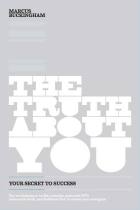Únase a getAbstract para acceder al resumen.

Únase a getAbstract para acceder al resumen.
David Couper
Outsiders on the Inside
How to Create a Winning Career...Even When You Don't Fit In!
Career Press, 2010
¿De qué se trata?
It’s all right to be an outsider – if you succeed. Learn how.
Recommendation
Do you look different than your colleagues? Think differently? Act differently? You’re probably an outsider. Possibly you suffer for it. Maybe your co-workers disrespect you. It’s tough to have a good day at work. Perhaps you can’t change whatever makes you different – your skin color, your accent, your body type. And why should you? getAbstract recommends professional outsider David Couper’s book, which explains to all self-professed outsiders how to accept their own uniqueness. Couper says glory in who you are, and turn your otherness into an advantage. He teaches outsiders how to be satisfied at work, present themselves in new ways, get the jobs they want and move inside.
Summary
About the Author
Career coach David Couper is the co-author of 50 Activities for Developing People Skills and George Sees Stars.

















Comment on this summary